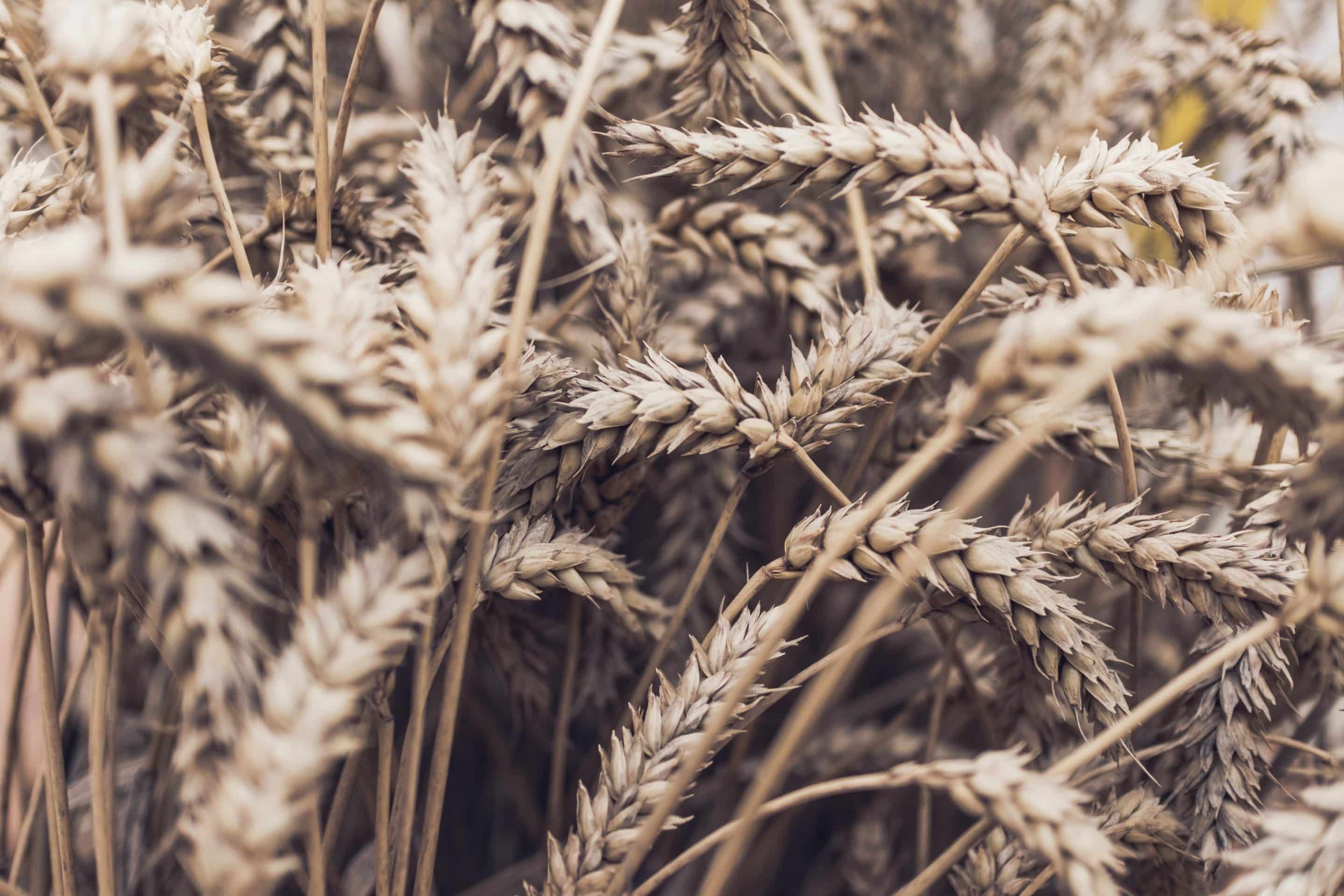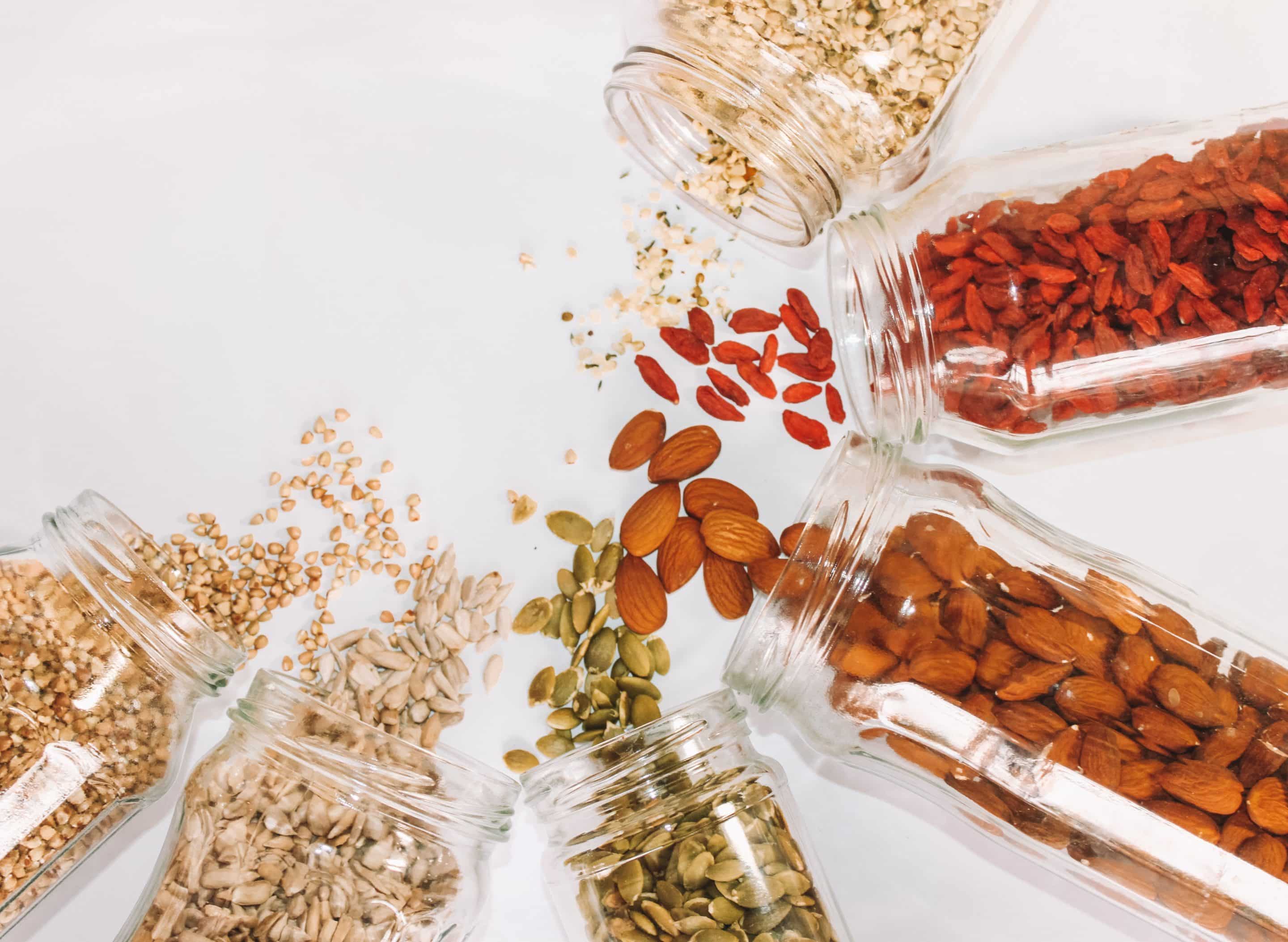Ketogenic Paleo Porridge
Porridge oats are a staple of the UK and western diet. They have become somewhat of a food religion of their own with people near refusing to start their day without their bowl of porridge inside them. The well-marketed fact that oats lower cholesterol is so drummed into our belief system that they have withstood the test of time in the ever-changing diet world and have become well established as a health food. There is sufficient evidence to suggest they do lower cholesterol, and they are a lot better than cereal, toast and jam for your breakfast so this is not an article to stating they are bad. However, here are some reasons why you might choose our alternative recipe made from ground almonds and flaxseed instead to make your porridge a bit better.
P.S. We invite you to give this a try, however, if we can’t convert you, we have also provided some guidance for your oats at the end – as they are not all made equally…

1. There is more fibre in almonds and flaxseed.
One of the main reasons supporting the health benefits of oats is that they are high in fibre. Fibre acts as food for the bacteria in our gut microbiome for them to thrive and aid digestion. It also slows digestion which is why many people feel full after a bowl of oats. However, while oats contain a respectful 10.1g of fibre per 100g serving, almonds contain 12.2g and flaxseed contains 27.3g. In most cases, more fibre is better.
2. Flaxseed and almonds have more nutrition.
Oats, flaxseed and almonds all contain a good level of minerals and vitamins. However, almonds and flaxseed have a ton more of key things such as magnesium, calcium, phosphorus and potassium. It is widely known now that the nutritional content of most foods are now much less than what they were 50 years ago due to our modern farming practices. Getting high nutrition foods such as these in your diet may help to prevent health problems that occur with nutrient deficiency.
3. More fat, more fuel.
While oats have very low fat content, almonds and flaxseed are extremely good fatty acid sources. Flaxseed, in particular, is one of the best plant based sources of omega 3 which has high anti-inflammatory properties. If you are vegetarian or vegan, diets which can lack good sources of fatty acids, we highly recommend you start eating more flaxseed for this reason.
4. Almonds and flaxseed are Paleo friendly, oats are not.
Paleo, for anyone that doesn’t know, is a way of eating which coincides with a diet that our ancestors are believed to have consumed. This means that grains, which are considered to be a modern food source, are off the list because it is believed our bodies have not evolved to consume these types of food. One key point made by the paleo community is that oats contain anti-nutrients such as avenin, phytic acid and lectins which are essentially the plants’ defence mechanism against animals eating them. Although the evidence is not completely clear, there is a wide consensus that anti-nutrients such as these can irritate and damage the gut lining to contribute to ‘leaky gut syndrome’.
5. It tastes better…
Or at least, we think so!
So to summarise – we believe oats can be part of a healthy diet and are not bad (if following the points below), however, your porridge could be better. Without further ado, here is the recipe for porridge made from almonds and flaxseed which is just as quick to make.

Ingredients
For 1 serving:
- 2-3 tablespoons of ground almonds.
- 1 tablespoon of milled flaxseed
- choice of milk (if using cow’s milk we advise this to be organic and grass fed, or we advise using a clean alternative milk such as RudeHealth)
Optional toppings and additions include cacao nibs, berries, yoghurt/kefir, banana, apple and cinnamon.
Method
Time: we estimate this to be the same as making porridge from oats, so pretty quick.
1. Pour around 1/3 of a pint of your choice of milk, ground almond and milled flaxseed into a saucepan and start heating it on the hob.
2. Keep stirring the ingredients while it heats up so it mixes up and does not burn.
3. After a few minutes, it will start to swell like porridge. If it’s getting too thick, add more milk or water.
4. Add your toppings and you are finished.
If you would like to make this a bit sweeter we recommend getting it from a whole food source such as adding a mashed up banana or a blended apple to the mixture. Avoid sugar and syrups which have a far more detrimental effect on your blood sugar levels.
When should I avoid it?
Almonds and flaxseed are considered to be extremely healthy and so it is unlikely you will need to be wary of this recipe. It should be noted however that flaxseeds and almonds have higher calorie content than oats. While this may appear detrimental to a goal such as weight loss, these foods also have a very good anti-inflammatory effect which can also help with weight loss. Ketogenic diets which involve a high fat consumption have numerous studies showing benefits for diabetes, weight loss and other health conditions. Calories do play a role, however, it is equally, if not more important, to understand the effects food has on your body. The high nutrition and fatty acid content also make almonds and flaxseeds very satiating so you may find that you are fuller for longer and refrain from eating snacks later in the day so the calories balance out.
If you are concerned about this, keep track through something like a food diary and waist to hip measurements as this will inform you if your body shape is changing favourably more accurately than the scales. Please contact or to talk to us in a free 15 minute consultation if this is you and you would like to receive help these issues.
For Oat Loyalists
If after all that you would still prefer to eat oats, that is ok because, as we showed, they are not bad food and are much better than things like sugary cereal, white bread and jam for your breakfast. However, we would like to sum up this post with a few guidance points which we hope you find useful:
1. Gluten and oats
Although oats do not contain gluten naturally there numerous cases where it has been found in oats. This is because oats are often grown and processed in the same facilities as other grains so contamination can occur. If you are gluten free or celiac and are still getting symptoms, it may be worth trying an elimination test to find out. Please contact us for more details for help with this if you are unfamiliar with the elimination diet.
2. Choose steel cut
Steel cut oats are the least processed variation of oat products. Rolled and quick oats are processed to make them quicker to cook, but lose some fibre because of this. Remember – more fibre is better.
3. Organic
This is universal for most food, however, oats may warrant extra care as they are typically grown and processed in the same facilities as other grains such as wheat, corn and barley. These crops are some of the most highly sprayed products in the agricultural industry so contamination of toxic chemicals may be likely.
We hope you found this information useful and you liked the recipe! If you did we would love to hear from you – please feel free to share this post or comment below.
Dr Jamie Ellis, DC and Dr Judith Johanne Torstvedt, DC







0 Comments